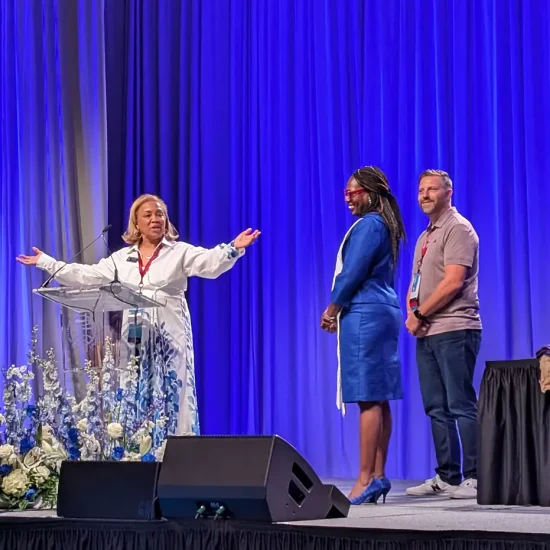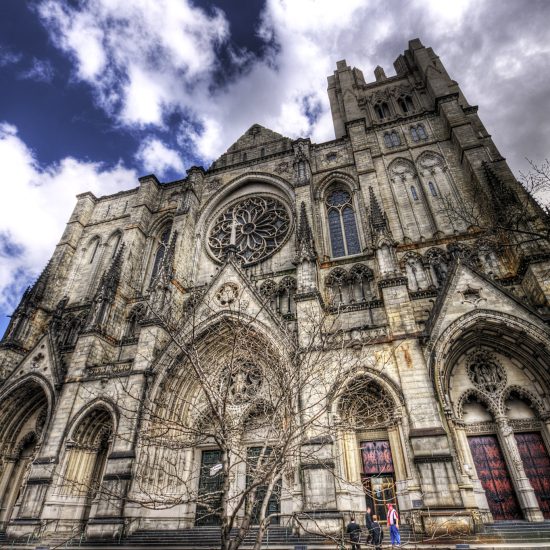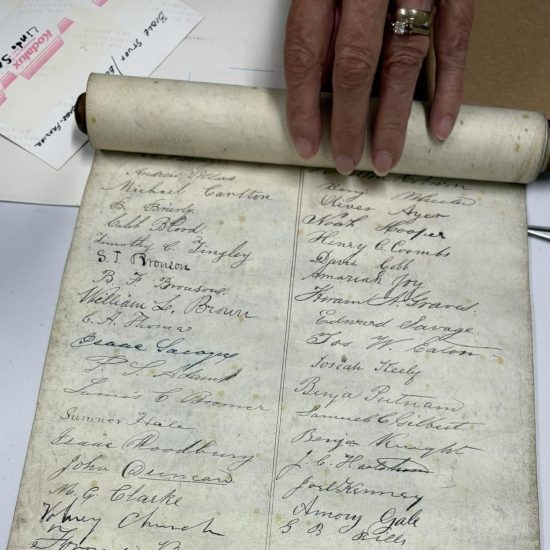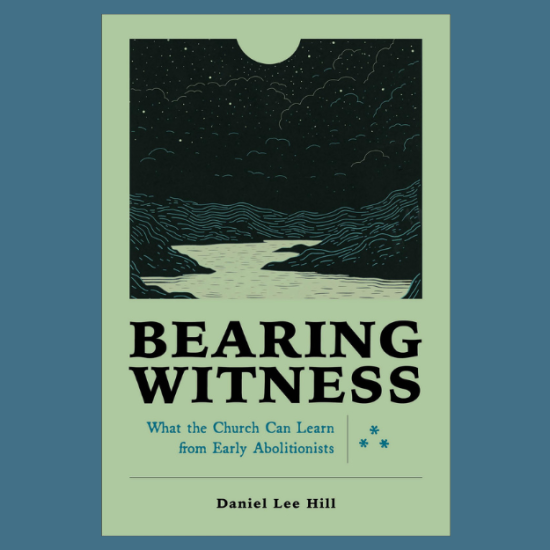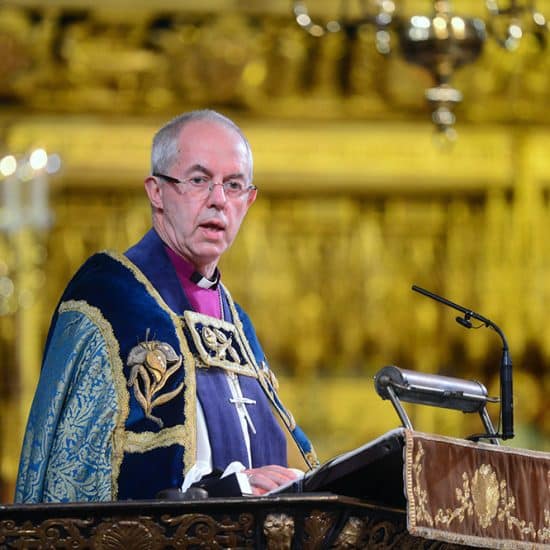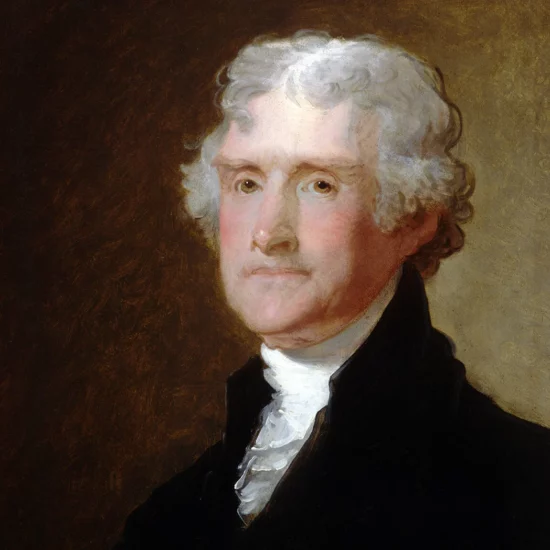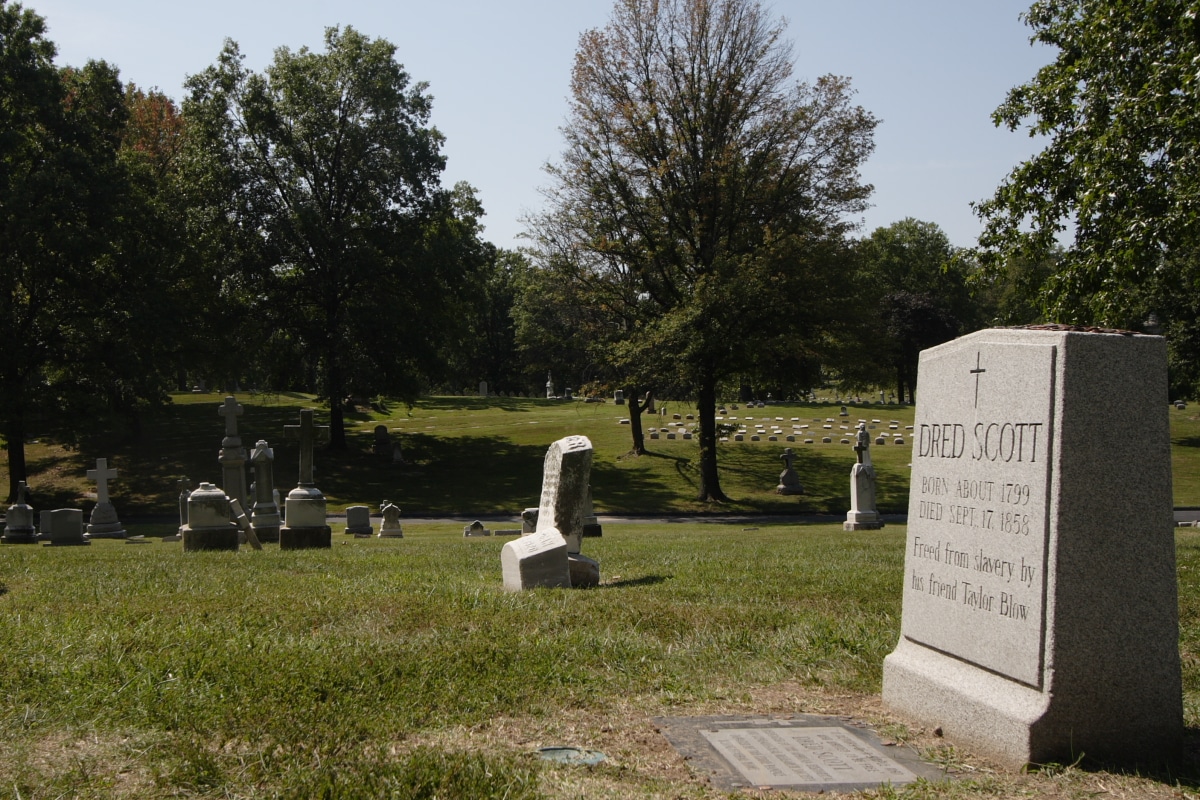
The namesake of one the U.S. Supreme Court’s most infamous decisions could get a new cemetery marker next year in St. Louis, Missouri. While Dred Scott’s name remains well known today, his gravestone is often hard to find. The Dred Scott Heritage Foundation wants to change that.

Dred and Harriet Scott wood engravings after photographs by John H. Fitzgibbon.
In 1846, Scott and wife, Harriet, sued for freedom from slavery with the assistance of a lawyer recommend by the pastor of the Second African Baptist Church (now known as Central Baptist Church) in St. Louis where Harriet was a member. The nation’s highest court ruled against the Scotts in 1857, overturning the “Missouri Compromise” of 1820 that had prohibited slavery in some states.
A little over two months after the decision, the Scotts still obtained freedom after being manumitted by Taylor Blow, an abolitionist who was a son of one of Dred’s earlier enslavers. Dred died the next year, on Sept 17, 1858, from tuberculosis.
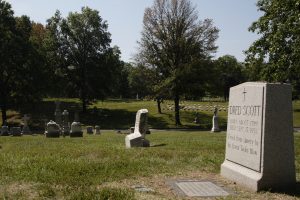
Dred Scott’s current grave marker in Calvary Cemetery. (R.K. Lawton/Creative Commons)
He was initially buried in an unmarked grave in a cemetery, but then Taylor transferred his coffin in 1867 to an unmarked spot in Calvary Cemetery. A Jesuit priest discovered the site of Scott’s plot in 1957, and a descendant of the Blow family purchased a standard two-and-a-half-foot headstone that was dedicated on the 99th anniversary of Scott’s death.
After Harriet’s death in 1876, she was buried in the Black-only Greenwood Cemetery in St. Louis, but her spot was also unmarked. The location wasn’t discovered until 2006, at which point funds were raised to install a marker for her.
At the much-larger Calvary Cemetery a few minutes away, Dred’s gravesite could see a new marker next year.
Lynne Jackson, president and founder of the Dred Scott Heritage Foundation and a great-great granddaughter of Dred and Harriet, told Word&Way that Scott’s grave is “the most requested site of all the 300,000 graves in their 470-acre property” of Calvary Cemetery. But, she added, his small headstone “has been overlooked and missed by many who seek to visit his grave.”
Jackson said the new marker will not only more appropriately honor Scott, but will also help people find the site when they come to visit and pay their respects.
“As a pioneer in civil rights, it will be most fitting for his gravesite to be noteworthy for the thousands who come to pay homage,” Jackson said. “In so doing, the Dred Scott Heritage Foundation hopes to do two things: share information about the Dred Scott family, and educate those who visit with the historical context that makes the Dred Scott decision one of the most infamous Supreme Court cases ever rendered.”
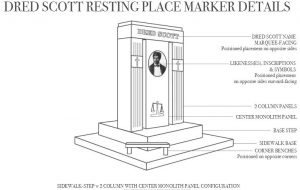
Design for new Dred Scott cemetery marker. (Dred Scott Heritage Foundation)
The group hopes to raise funds to build the marker in time for Sept. 17, 2021 — which is not only “Constitution Day” but also the anniversary of Scott’s death. As of Nov. 16, the group’s fundraiser has raised just under $20,000 of its $85,000 goal.
In 2007, just months after the 150th anniversary of the Supreme Court’s decision in Scott’s case, the Southern Baptist Convention adopted a resolution to “lament and repudiate” the decision. The resolution also reaffirmed the SBC’s 1995 apology for its founding to support slavery.
The Missouri Baptist Convention passed a similar resolution in 2018 “lamenting and repenting from any active or passive support of this decision.” It also called on the Missouri Legislature to “formally denounce” the state’s Supreme Court ruling against the Scotts in 1852. Bills introduced to do this in 2018, 2019, and 2020 all failed to pass.

